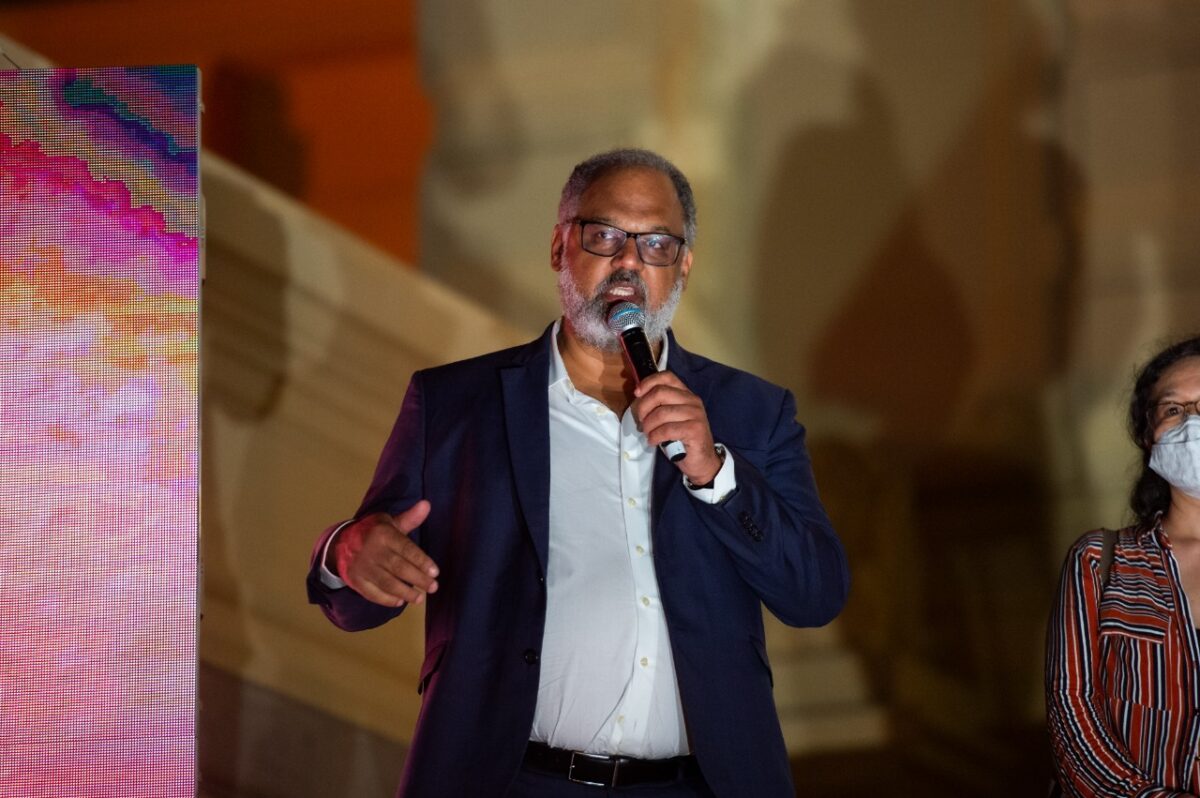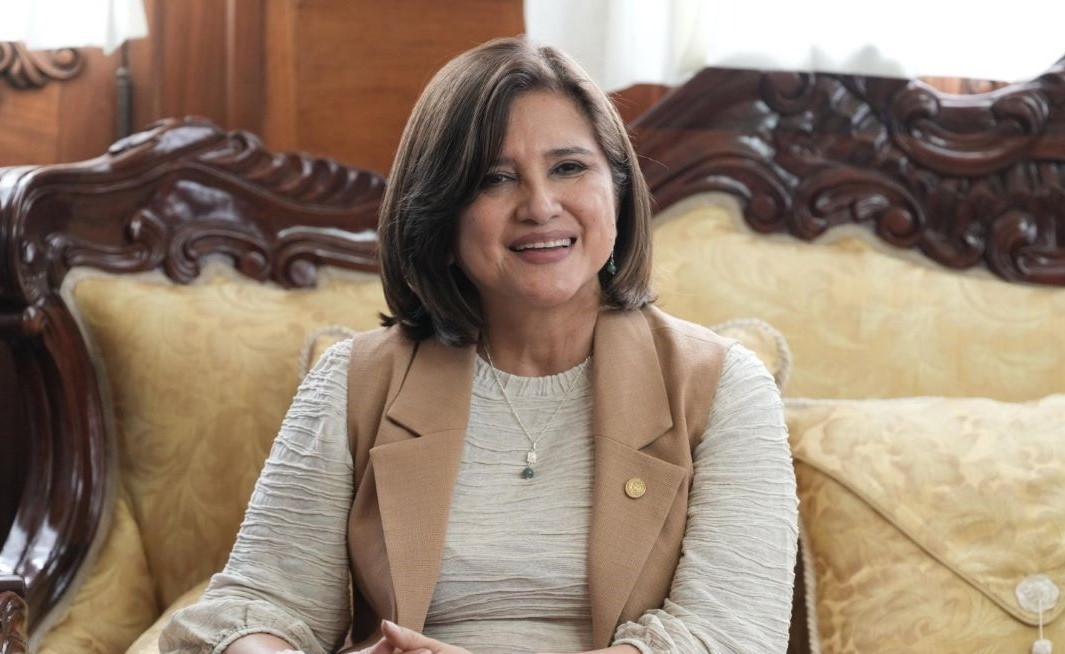 #Interviews
#Interviews
Science as an arm of foreign policy
Amâncio Jorge de Oliveira, of USP, discusses the challenges of Brazilian science diplomacy
 Amâncio de Oliveira: “Establishing dialogue among scientists and diplomats is quite difficult, so we need to find a common language” | Credit: Personal Archive
Amâncio de Oliveira: “Establishing dialogue among scientists and diplomats is quite difficult, so we need to find a common language” | Credit: Personal Archive
More than simply informing decision-making processes, science can be used as an instrument for international cooperation. In recent years, so-called “science diplomacy” has gained importance through initiatives that seek to foster collaborations among countries. One example is consortia among countries for vaccine development, as seen during the COVID-19 pandemic. The fact is that the concept of science diplomacy is extremely broad. It also includes support by scientists in diplomatic negotiations and the signing of scientific cooperation agreements involving countries with strained relationships.
“Researchers who can explain technical matters in an accessible way are able to talk to diplomats and help governments negotiate international treaties on topics such as climate change, food insecurity, and healthcare disparities,” notes Amâncio Jorge de Oliveira, a professor at the Institute of International Relations of the University of São Paulo (IRI-USP) and executive coordinator of the São Paulo Innovation and Science Diplomacy School (InnSciD-SP), one of the world’s first schools exclusively dedicated to this subject.
With degrees in medicine and social sciences from USP, Oliveira earned a doctorate in foreign policy from the same institution and authored his dissertation on the Free Trade Area of the Americas (FTAA). More recently, he has emerged as a scholar of science diplomacy. In the following interview, he discusses scientists’ role in international relations and how Brazil can stand out in this area.
Science Arena – What are the main attributes of science diplomacy?
Amâncio de Oliveira – There are several attributes, but I will highlight three that I consider to be the most important. The first concerns science’s ability to inform diplomatic activities. In an agreement regarding the environment, for example, diplomats must rely on scientific knowledge—and are, therefore, usually advised by scientists. Another attribute is using diplomacy to strengthen science itself. This occurs when diplomats establish connections among research institutions or help establish scientific collaboration agreements, as was the case for developing the COVID-19 vaccine. The third attribute happens when conventional diplomacy is insufficient. For example, in situations of conflict between countries, for political, ideological, or economic reasons. Even in delicate situations, it is possible to get research groups from nations with a strained relationship to collaborate.
Can scientists use so-called “soft power” or support traditional diplomacy?
Science diplomacy is a prevalent instrument of soft power. However, it can also support traditional diplomacy. These are not mutually exclusive situations. What changes is how diplomacy will be practiced. It may be that the scientific community diverges from the government, but in some cases, they may agree on several points and soft power actions can be utilized. It is worth noting that, in some situations, the authorities may use science to act in bad faith. For example, applying scientific knowledge to chemical warfare. In this case, scientific knowledge is deliberately used to violate international law, subverting diplomatic principles.
Considering challenges such as climate change, advancing epidemics, and food insecurity, how can scientific collaboration networks contribute to international negotiations?
The fact is that producing science in a network is better than doing it alone. The benefit of collaborative networks is that they can combine the best of each research group to quickly produce quality knowledge. This is increasingly necessary in facing the challenges you mentioned, as well as others, such as the environmental crisis. We now know that environmental degradation in a country like Brazil can change the climate in other nations. This means that the most pressing issues facing humankind cannot be addressed in isolation, from a regional perspective. In this sense, it is necessary that science diplomacy—supported by research groups working in networks—gains traction worldwide, in order to stimulate new international agreements capable of finding solutions to all these issues.
Can science diplomacy be used as an instrument of international cooperation?
Through science diplomacy, countries can share knowledge, but each country needs to know how to best leverage this knowledge according to local issues. As much as the challenges are global, each region has particular characteristics. As such, cooperation is not easily attained. Brazil is a prime example of this complexity. Our country has an incredibly positive history of international partnerships and cooperation with countries in the Global North. However, there is still much progress to be made in relations with countries in the Global South, such as India and Indonesia, which face similar issues to ours, most notably social inequality and violence. For there to be an effective and high-quality exchange of knowledge, we need to become more familiar with these countries, and this would entail greater scientific cooperation with them. Unfortunately, we do not always have a legal framework and protocols in place to conduct these negotiations, and there are also difficulties such as the language barrier.
Is the global scientific community more engaged with diplomatic issues?
Dialogue between scientists and diplomats is quite difficult, due to the lack of basic understanding between the two cultures—scientific and diplomatic. They need to understand each other’s worlds, which is not always possible, because their cultures entail distinct professional practices that often have differing values. Nevertheless, it is necessary that we work towards finding a common language, so that there is communication and understanding. Overall, it is still hard to envision the scientific community as being well-connected to diplomatic issues, but there is room to grow. At the São Paulo Innovation and Science Diplomacy School [InnSciD-SP], we have already educated 2,000 students interested in bridging the gap between science and diplomacy.
Diplomats can help establish scientific collaboration agreements, as was the case for developing the COVID-19 vaccine
What is Brazil’s reputation in science diplomacy?
Generally speaking, Brazil has a good reputation in science diplomacy. The country has always been highly competitive and is well versed in this respect. It is highly dependable. We have educational and research institutions, such as USP and the University of Campinas [UNICAMP], which are internationally recognized and serve as “business cards” for Brazilian science. I believe we have a good relationship with other scientific organizations around the world.
In recent years, many Brazilian researchers have left the country in search of better working conditions at foreign institutions. Does this brain drain in any way interfere with our science diplomacy?
The scientific diaspora is clearly a problem. From a diplomacy standpoint, however, this phenomenon does not prevent researchers who leave Brazil from continuing to contribute to the country. Many continue to collaborate with their peers who have remained here. It also flows in reverse: Brazil still attracts many researchers. We have intensely competitive research programs, especially in internationally strategic areas, such as biomedical sciences. Our students, in general, are prepared to welcome people from abroad. At USP, for example, practically all chemistry students speak a second language. So, the scales are still balanced.
How does science diplomacy play a part in the current conflict between Russia and Ukraine?
There are many facets of involvement. Straight away, there was a strict policy of receiving Ukrainian researchers, including in Brazil, with specific scholarships giving opportunities to scientists who manage to leave the conflict zone. Additionally, we have seen many Russians seeking refuge in other countries to continue practicing their profession. This movement generates diversity in science, favoring the production of knowledge. Science also plays an active role, for example, in resolving the impact generated by the shift in the energy matrix due to gas exports in the region. Diplomacy is seen in the pursuit of alternatives, which includes consulting with energy and bioenergy experts.
And in relation to the Amazon, how is Brazilian science involved from a diplomatic perspective?
Environmental science is extremely robust in Brazil, but the country’s international reputation is currently suffering. The effort now must be to communicate what is happening on an international scale, in a way that does not shift the narrative. We need to set parameters to not give off the impression that Brazil is literally setting fire to the Amazon, while denouncing abuses along the way. The scientific community’s responsibility is to decrease polarization around environmental issues, a situation that hinders our ability to evaluate our positive accomplishments. For example, Brazil has good practices in terms of its solid waste policy. We need to be more precise and less impressionistic.
How can we engage more scientists in diplomatic matters?
We cannot resolve increasingly complex issues without multidisciplinary teams. Therefore, I recommend that scientists take the time to communicate their challenges and discoveries at conferences and meetings outside of academia, so that people from other segments of society can learn how scientific research can benefit everyone.
*
This article may be republished online under the CC-BY-NC-ND Creative Commons license.
The text must not be edited and the author(s) and source (Science Arena) must be credited.


